In the 1950s, Buick cars became symbols of prosperity. They stood out with unique “VentiPorts” on their fenders, reflecting the era’s aviation fascination. But Buick wasn’t all about looks. They introduced power features like brakes, steering, and windows. This made driving effortless.
The 1950s was crucial for Buick. It shaped its image as a choice for the discerning. This was a step towards modern luxury vehicles. Buick uniquely balanced innovation with comfort. This trait often got overshadowed amidst the flashy designs of the 50s.
Yet, it was a significant part of Buick’s legacy. It showed cars could be smart yet comfortable, setting a course for Buick’s future designs.
Buick Compared to Others In The 50s
In this era, the American automotive industry was thriving with innovation and competition. While Buick prioritized comfort and a smooth ride, other brands had different focal points:
Speed and Performance : Some manufacturers were particularly keen on speed and performance. For instance, Jaguar was recognized for producing very fast cars during the 1950s, with models like the D-Type and the XK120 being iconic for their speed.
Design and Aesthetics: The 1950s saw a surge in unique designs inspired by the Space Age and aviation trends. Chevrolet’s 1957 Bel Air is often hailed as a design icon of this era.
Technological Innovations: The decade was marked by significant technological advancements in the automotive industry. Innovations like air conditioning, automatic transmission, power steering, and power brakes began making their way into mass production. The horsepower race had also commenced, setting the stage for the muscle car era.
Sportiness: Brands like Chevrolet with its Corvette and Ford with its Thunderbird began to lean towards sportier designs and performance, contrasting Buick’s emphasis on luxury and comfort.
Upscale Offerings: Similar to Buick, some brands like Oldsmobile and Cadillac were also targeting the upscale market. However, there were distinctions; for instance, Oldsmobile had a more sporting image, while Buick was seen as more upscale.
High Volume, Low Price Strategy: Brands like Chevrolet, Ford, and Plymouth were known for their high-volume, low-priced models, contrasting with Buick’s more upscale brand image.
Buick’s focus on comfortable and luxurious driving experiences distinguished it in a market where other brands were exploring different avenues of appeal to cater to a burgeoning car culture in post-war America.
1950 Buick Models
1950 Buick Roadmaster Riviera

1950 Buick Special
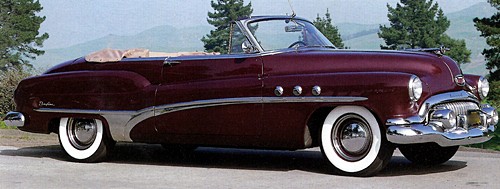
1951 Buick Special
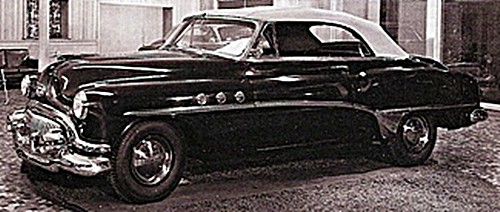
1952 Buick Super
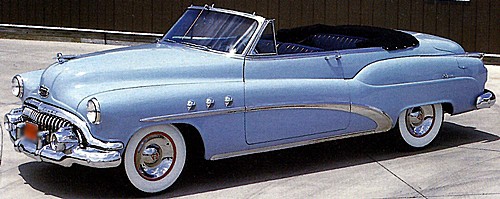
1952 Buick Super Wagon
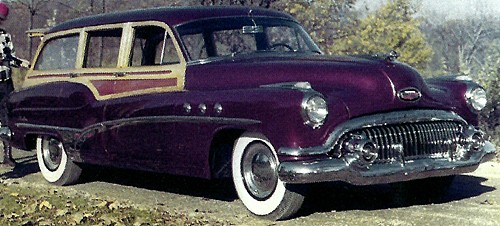
1953 Buick Roadmaster Wagon
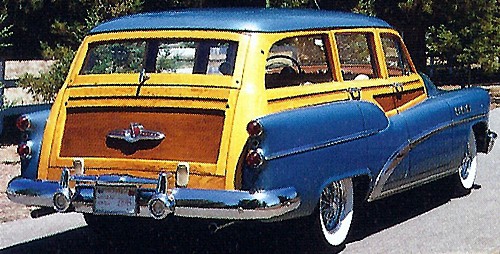
1953 Buick Special
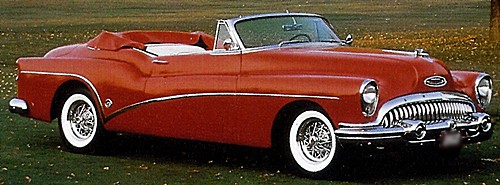
1953 Buick Skylark Convertible
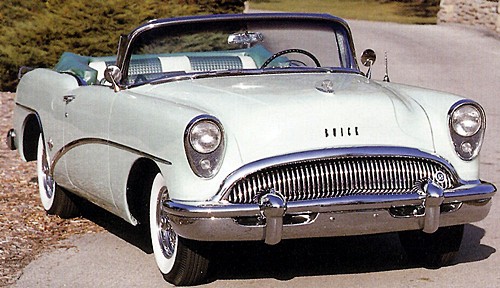
1954 Buick Skylark Convertible
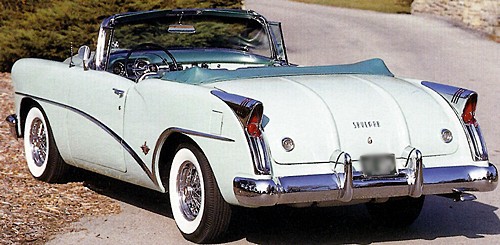
1954 Buick Skylark Convertible (rear view)
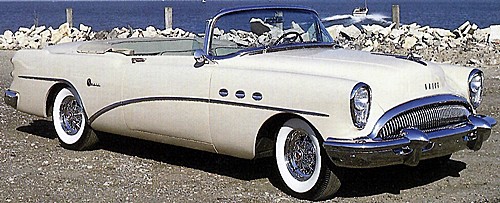
1954 Buick Super Convertible
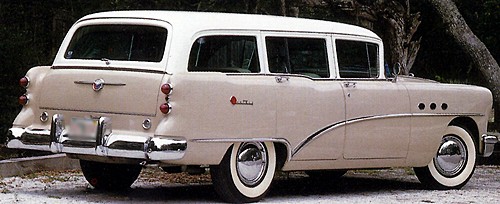
1954 Buick Century Wagon

1955 Buick Riviera Special
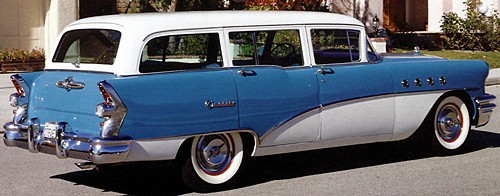
1955 Buick Century Wagon
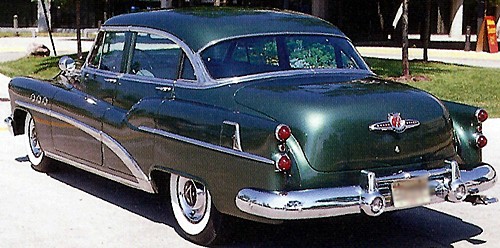
1956 Buick Special Convertible

1957 Buick Roadmaster
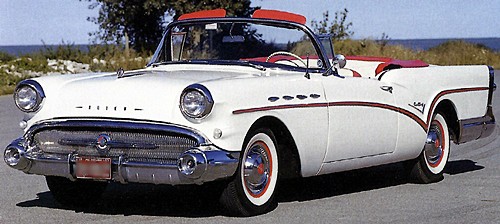
1957 Buick Century Convertible
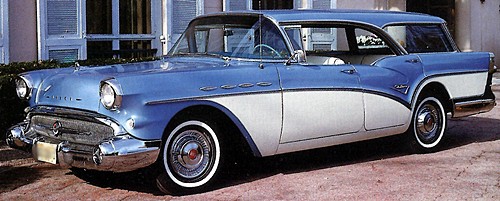
1957 Buick Century Caballero
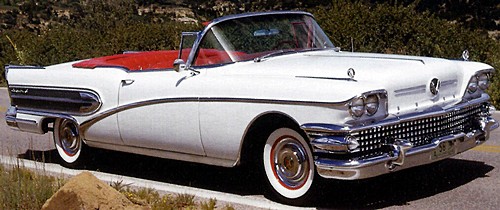
1958 Buick Roadmaster Convertible
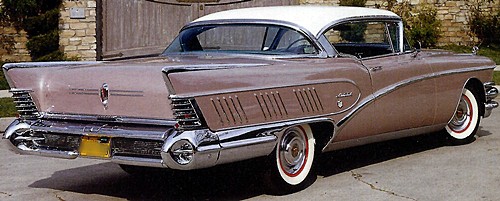
1958 Buick Limited Coupe
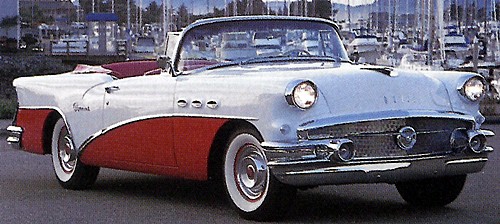
1959 Buick LeSabre
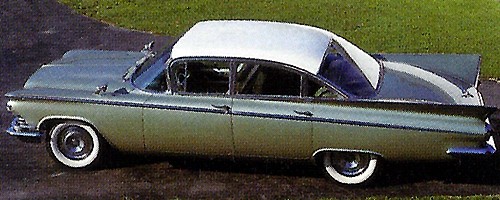
1959 Buick Electra 225 Convertible
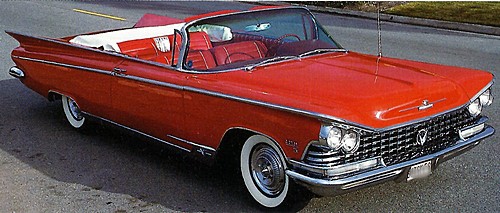
1959 Buick LeSabre
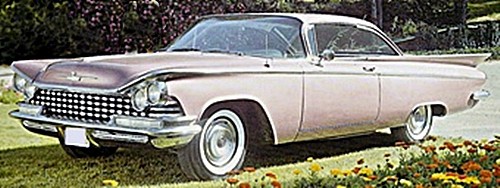
Comparing Electra, Invicta, and LeSabre
The 1959 Buick models of Electra, Invicta, and LeSabre were differentiated in terms of trim levels, engine specifications, and body styles, among other features. Here’s a detailed breakdown based on multiple sources:
- Designation:
- The LeSabre was designated as the entry-level model.
- Invicta was positioned as the intermediate model.
- Electra was the top-of-the-line model for Buick in 1959.
- Engines:
- The LeSabre came standard with a 364-cubic-inch V8 engine which was a carryover from the 1957 and 1958 Buick models.
- Both the Invicta and Electra were powered by Buick’s new 401-cubic-inch V8 engine.
- Body Styles and Dimensions:
- The LeSabre and Invicta shared the same body style while the Electra had a slightly longer wheelbase and body. The Electra also had slightly different rear quarter windows compared to the other two models.
- Trim and Interior:
- The Invicta had upgraded trim and interior compared to the LeSabre.
- The Electra, being the most luxurious model, likely had a more premium trim and interior although this wasn’t explicitly detailed in the sources.
- Styling:
- All three models featured new and dramatic styling in 1959, with blade fins sweeping from the front of the body rearward, slanted headlights, and other stylistic features. However, the level of luxury and finishing details would have varied among these models, aligning with their positioning as entry-level, intermediate, and top-of-the-line models.
- Naming Evolution:
- The 1959 model year saw a change in model names with the Special becoming the LeSabre, the Century being renamed as the Invicta, and the Electra being introduced, replacing both the Super and Roadmaster models from previous years.

What are the differences between the 1959 Electra, Invicta, and LeSabre? All three seem like the same car. I am guessing the names only referred to trim levels, but I would love some clarity if you have any!
Hi Marc – I had to dig deep and do some research to answer your question. I updated the article to include a comparison. Scroll to the very bottom: Here you go: https://fiftiesweb.com/cars/album-buick/